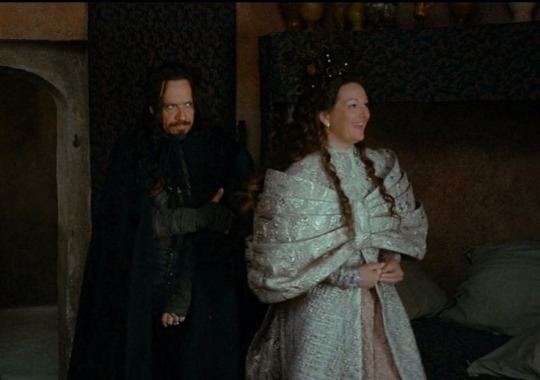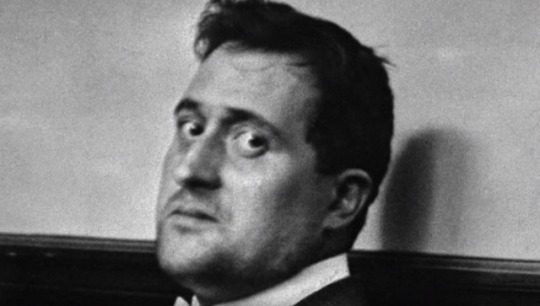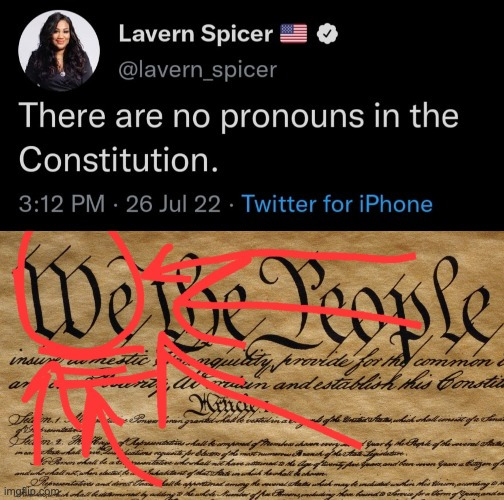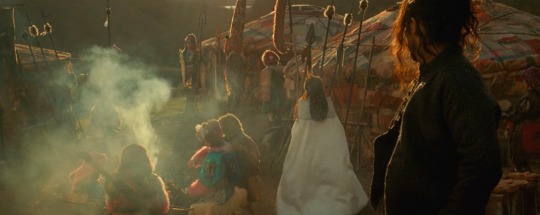#ironist
Text

Original comic
#transformers#ironist#fisitron#skyfall#lsotw#transformers bullets#sorry for using the same pic of skyfall twice but in my defence it's not like he shows up a lot in IDW#anyway skyfall sucks <3#shout out to ironfist for being the worst judge of character in tf history
9 notes
·
View notes
Text


💛 Grumpy & Sunshine 💛
#impossible à faire sans l'aide de ma gentille ironist#y a pas un meme qui les résume mieux je trouve 😂#kaamelott#arthur x guenièvre#pendranièvre#arthur x guenievre#pendranievre
236 notes
·
View notes
Text

I'm obsessed with Seth Cohen rn, so I traced over a scene from an Atomic County episode on YouTube and made it a bit higher quality and into a png <3
0 notes
Text
The Fanboy Ironists
By Colin James
Chewy likes them unadorned.
I wasn't doing anything
until you called.
There is a lake nearby
and I'm still lathered up
from bathing there.
Did you say Tuesday week?
Your accent is clipped as if
letting off some steam.
Colin James has a couple of chapbooks of poetry published. “Dreams Of The Really Annoying” from Writing Knights Press and “A Thoroughness Not Deprived of Absurdity”…
View On WordPress
#academy of the heart and mind#academyoftheheartandmind#Colin James#Poem#poems#poet#Poetry#The Fanboy Ironists
0 notes
Text
Tumblr: You are welcome to my un-paywalled post on Lana Del Rey, white femininity, and 2010s-era Tumblr feminism. I'm sure this will work out well! Enjoy.
29 notes
·
View notes
Text
Current nonfiction reading is Socrates: Ironist and Moral Philosopher by the late Gregory Vlastos. Much like Socrates himself, it's a wry, idiosyncratic, and utterly brilliant book: assembling copious amounts of data from Plato's early dialogues, Vlastos argues 1) that Socrates' characteristic "irony" was a teaching device, intended to force his listeners to examine their flawed preconceptions about ethics; and 2) that, contrary to the Skeptics' claims, Socrates did hold positive beliefs about virtue and happiness. I don't know that I agree with Vlastos on every point, but the book is worth it just to see his formidable mind at work, sparring with other scholars while also cheerfully acknowledging his own shortcomings. Rarely has a scholarly work ever been so much fun.
35 notes
·
View notes
Text

Morning sun spotlights interior of Voskresenskiy Cathedral, Russia
National Geographic, June 1994 :: [vintagenatgeographic]
* * * * *
“Religions are, by definition, metaphors, after all: God is a dream, a hope, a woman, an ironist, a father, a city, a house of many rooms, a watchmaker who left his prize chronometer in the desert, someone who loves you—even, perhaps, against all evidence, a celestial being whose only interest is to make sure your football team, army, business, or marriage thrives, prospers, and triumphs over all opposition. Religions are places to stand and look and act, vantage points from which to view the world. So none of this is happening. Such things could not occur. Never a word of it is literally true.”
― Neil Gaiman, American Gods
[via "alive on all channels]
#Alive On All Channels#Neil Gaiman#American Gods#quotes#national Geographic#Boskresenskiy Cathedral#Russia#orthodox
29 notes
·
View notes
Photo

9 novembre 1918 : mort du poète Guillaume Apollinaire ➽ http://bit.ly/Guillaume-Apollinaire Esprit moderne, ironiste, fantaisiste, voire paradoxal, âme de lyrique traditionnel, d’historien et d’érudit, voilà tel que, dans sa curieuse et attachante dualité, apparaît Guillaume Apollinaire à travers ses oeuvres, tel qu’il se révélait à certains de ceux qui l’ont connu
#CeJourLà#9Novembre#Apollinaire#Poète#Écrivain#Poésie#Littérature#Lettres#histoire#france#history#passé#past#français#french#news#événement#newsfromthepast
22 notes
·
View notes
Text
"Irony and cynicism were just what the U.S. hypocrisy of the fifties and sixties called for. That's what made the early postmodernists great artists. The great thing about irony is that it splits things apart, gets up above them so we can see the flaws and hypocrisies and duplicates. The virtuous always triumph? Ward Cleaver is the prototypical fifties father?
"Sure." Sarcasm, parody, absurdism and irony are great ways to strip off stuff's mask and show the unpleasant reality behind it. The problem is that once the rules of art are debunked, and once the unpleasant realities the irony diagnoses are revealed and diagnosed, "then" what do we do? Irony's useful for debunking illusions, but most of the illusion-debunking in the U.S. has now been done and redone. Once everybody knows that equality of opportunity is bunk and Mike Brady's bunk and Just Say No is bunk, now what do we do? All we seem to want to do is keep ridiculing the stuff.
Postmodern irony and cynicism's become an end in itself, a measure of hip sophistication and literary savvy. Few artists dare to try to talk about ways of working toward redeeming what's wrong, because they'll look sentimental and naive to all the weary ironists. Irony's gone from liberating to enslaving. There's some great essay somewhere that has a line about irony being the song of the prisoner who's come to love his cage."
- David Foster Wallace
11 notes
·
View notes
Text
Sincerity and Irony

People are getting sick of irony. The self-aware one-liners of the MCU were once refreshing but have worn out their welcome. (“Marvel One-Liners” is now a buzzword for lazy or cliched writing.) Shit like HBO’s Velma is being described as “too snarky for its own good.”
The problem is that its lazy, or its so ubiquitous that it’s boring, but its also that this type of self-conscious comedy sabotages any sense of sincerity, suggesting that writers are embarrassed to be telling this type of story.
With the advent of postmodernism in the 60s, irony dominated entertainment and was pivotal in exposing the hypocrisies of issues like the Vietnam war. Television adopted a self-depreciating, ironic attitude to make viewers feel smarter than the naive public, and flatter them into continued watching.
Irony, sarcasm, snark, absurdist humor, etc, are all great for ripping off the mask and revealing the unpleasantness underneath. But once all the unpleasant realities are exposed, the illusions debunked, what’s next?
youtube
The Onion’s spoof of an Applebee’s campaign, encouraging hipsters to visit the restaurants “ironically” in order to mock the food, service and atmosphere. Then a second ad campaign, encouraging middle-age adults to go to Applebees to mock the hipsters.
Neither group is actually happy about what is going on. The Onion video points out that irony and formality have become the same thing. At one time, irony revealed hypocrisies, but now it simply acknowledges one’s cultural compliance and familiarity with pop culture. Rebellion has been annexed by the commercialism it attempts to defy.

From David Foster Wallace:
Anyone with the heretical gall to ask an ironist what he actually stands for ends up looking like an hysteric or a pig. And herein lies the oppressiveness of institutionalized irony, the too-successful rebel: the ability to interdict the question without attending to its subject is, when exercised, tyranny. It [uses] the very tool that exposed its enemy to insulate itself
HBO’s Velma can’t joke about how teen drama lures in viewers with gratuitous sexuality and nudity while simultaneously trying to lure in viewers with a gratuitous locker room shower scene. It doesn’t matter if you’re ironically eating at Applebees or sincerely eating at Applebees, you’re still eating at Applebees.
The irony isn’t exposing any hard truths about the world we live in, it’s not rebellious at all, it’s simply pointing out its own willing compliance. Its defending itself from criticism by making the observation about itself before someone else does.
It’s sly, its disingenuous, its pseudo-sincerity. As David Foster Wallace puts it, “irony and ridicule are entertaining and effective, but at the same time, they are agents of great despair and stasis in US culture.”

The distinctive feature of satire, the thing that separates it from other forms of humor and that makes it defensible, is that it is a narrative means of presenting an argument against something that the satirist finds objectionable. Irony actually needs to be balanced out by sincerity or else what is the point?
This is also my problem with shows like South Park and the philosophy of “making fun of everything equally.” Roger Ebert on Team America World Police said this: “I wasn’t offended by the movie’s content so much as by its nihilism. At a time when the world is in a crisis and the country faces an important election, the response of Parker, Stone, and company is to sneer at both sides -- indeed, at anyone who takes the current world situation seriously.”
But now, all we seem to want to do is keep ridiculing stuff. Post modern irony and cynicism just become an end to itself. This is cringe culture. This is CinemaSins. No one wants to talk about redeeming what’s wrong, or even enjoying what you like, because you risk just coming across as sentimental and naive to the weary ironists. Irony becomes a cage.
I won’t go into this too much, but this is also the problem with trying to satirize hate groups, racists, nazis, etc.

It reminds me of a lot of the ways in which transphobic people are ridiculed because they don’t seem to understand what pronouns are. Example, “GOP candidate roasted on twitter after calming there are no pronouns in the constitution.”
But we all already know her statement isn’t about grammar - what she is actually saying that trans people don’t belong in America.
Pointing out her grammatical mistake doesn’t expose what’s under the mask, it redirects our attention to the mask. But we already know what’s under the mask.
Imani Barbarin puts it best in this tik tok response to the video “John Stewart obliterates Oklahoma State Senator Nathan Dahm.” In Barbarin’s words “Republicans and alt right largely do not care if they are hypocrites. They’re not concerned if they’re seen as liars.” “The space that we are in has shifted so far right that we forget they want to kill people. The debate is over.”
We are not dealing with rational or reasonable people. They are just fascists who want a group of people dead.
1920s Germany had an active queer nightlife scene. Cabaret performances often satirized politics and the Nazi politics. They were entertaining, I’m sure they were empowering, but satire didn’t stop the Nazis.

I started writing this, because I found this quote from an interview with Howard Ashman that i think is really interesting:
“Little Shop of Horrors satirizes many things: science fiction, ‘B’ movies, musical comedy itself, and the the Faust legend. “Little Shop of Horrors satirizes many things: science fiction, ‘B’ movies, musical comedy itself, and the the Faust legend. There will, therefore, be a temptation to play it for camp and low-comedy. This is a great and potentially fatal mistake. The script keeps its tongue firmly in cheek, so the actors should not. Instead, they should play with simplicity, honesty, and sweetness--even when events are at their most outlandish. The show’s individual “style” will evolve naturally from the words themselves and an approach to acting and singing them that is almost child-like in its sincerity and intensity. By way of example, Audrey poses like Fay Wray from time to time. But she does this because she’s in genuine fear and happens to see the world as her private ‘B’ movie--not because she’s “commenting” to the audience on the the silliness of her situation. Having directed the original New York production of Little Shop myself, and subsequently having seen it in many versions and even many languages, I can vouch for the fact that when Little Shop is at its most honest, it is also at its funniest and most enjoyable.”
The bold highlights are mine.
It would have been very easy for this film to try and deflate the silliness and strangeness of its own set pieces. But instead of winking at the camera and pointing out how stupid it all is, it challenges us to invest in its world and take its characters seriously.
I think that there is still a place for irony, and that irony can still be done in radical and exhilarating ways. But I think in our current landscape, the real risk-takers and rebels are the sincere - those who risk the eye rolls, the yawns, accusations of naivete or sentimentality or melodrama. We need songs and stories that are real and sincere and empathetic. We need to fortify ourselves against nihilism and hatred.
61 notes
·
View notes
Text
April 2024 Vocaloid Song Tournament
Round 2, Set 2, Match 2: Ironist by Orutana vs. Atelier Horloge by mothy
Please listen to both songs before casting your vote! And please reblog for a bigger sample size!
youtube
youtube
#vocaloid#utauloid#utau#synthesizer v#synthv#synth v#kasane teto#teto kasane#teto utau#teto synthv#teto vocaloid#Youtube
4 notes
·
View notes
Text

That moment that screams " love interest ".
#merci ironist pour ta capture 🥰🥰#kaamelott#arthur x guenièvre#pendranièvre#arthur x guenievre#pendranievre#kv1 spoilers
55 notes
·
View notes
Text
🎵 Instrument of Surrender
I've decided to include when we get points in a stat. The game doesn't *explicitly* give us this information unless we check the ledger, but I think it could be helpful, and more importantly, funny.
That's brilliant! So funny and nihilistic.
+1 Ultraliberalism.
ENCYCLOPEDIA - People in Martinaise tend to disagree, as do many prominent art critics and thought leaders with more *nuanced* social awareness than the young ironists.
+5 XP
HORSEBACK MONUMENT - Filippe III, the Squanderer, however, with his bronze face up in the air, doesn't seem concerned about what the *hoi polloi* think of him in death.
2. [Leave].

PALEDRIVER - The small wrinkled woman does not greet you. She nods along to something on her radio. A photograph is clutched in her hands and there is a warm smile on her face.
INLAND EMPIRE [Medium: Success] - It's the warmth of a winter night's fire. Maybe she could give you comfort and shelter? Some cigarettes and food money? Maybe she's your...
"Grandma?"
Snap your fingers in front of her face.
"Excuse me, ma'am, I'd like to ask some questions."
"Nothing to do here." [Leave.]
PALEDRIVER - Nothing. Her smile just keeps widening; her hair is grey like lead.
3. "Excuse me, ma'am, I'd like to ask some questions."
PALEDRIVER - No response. Wherever this woman is, your words fail to reach her.
2. Snap your fingers in front of her face.
KIM KITSURAGI - "If you want her attention you may need to be more forceful."
3. Snap your fingers twice.
PALEDRIVER - "Where am I? Who are you?" Like a magician recalling a subject from hypnosis, you've jolted her back to reality.
EMPATHY [Medium: Success] - The smile on her face has disappeared, replaced by the wary aspect of a cornered beast.
"I was actually hoping *you* could tell me that."
"Are you alright, ma'am? You were out."
"Me? I am the law around here."
+1 The Law.
PALEDRIVER - "Then I don't suppose you could tell me where we are, lawman?"
"Never mind," she sighs. "I remember now. I'm still stuck in that traffic jam. In the *Fifties*," she adds with contempt.
"Wait, what's so bad about the Fifties?"
"Where else would you be then?"
"*When* else would you be then?"
PALEDRIVER - "The men have small jaws and everything is made out of plastic. Why do you need plastic?" she scoffs. "When you can make the world out of amber?"
"Where else would you be then?"
"*When* else would you be then?"
PALEDRIVER - "Back in Mesque during the time of the Revolution." The smile returns to her face. "The sidewalks and cafes are filled with young people... I was on my way to see a new boiadeiro picture starring Gabriel Buenguerro."
"Until you came along, that is." The look she gives you is accusatory.
"Who's Gabriel Buenguerro?"
"So I take it you were in Mesque when you were young?"
"Sorry to interrupt your dreaming, ma'am."
"Right. I have some other questions for you. Police questions." (Proceed).
PALEDRIVER - "*This* is Gabriel Buenguerro..." She shows you the photograph in the lavish amber frame.
Take a look.
PALEDRIVER - A strikingly handsome man looks straight at you, his head crowned with a wide-brim hat. His hair is dark as an oil slick and his jaw is the most perfectly chiselled thing you've ever seen.
SUGGESTION [Medium: Success] - This man's got a hold over her. Even fifty years later, you can feel it...
PALEDRIVER - "He was the biggest star of his day. Girls used to faint in the aisles of the cinema whenever he came on the screen, and school boys used to memorize all his lines..." She leans back, savouring the world she's conjured up.
2. "So I take it you were in Mesque when you were young?"
PALEDRIVER - "*Someone* was..." She nods as though her meaning were perfectly clear.
3. "Someone? Are these not your memories?"
PALEDRIVER - "They are someone's memories, boy." She gets gruff, suddenly. "What difference does it make if it's me or not?"
"They're beautiful. That is all that matters. Beautiful and true -- and they will win. They're *coming* for this, you know…" She looks around. "All of this."
EMPATHY [Medium: Success] - She seems to derive some bitter pleasure from this strange thought. As if the past will one day wipe the present away, like a tidal wave approaching.
4. "Sorry to interrupt your dreaming, ma'am."
PALEDRIVER - "I wasn't dreaming. I was *there*, lawman. It was early spring and 'The Man Behind The Black Sun' had just come out. The posters were twenty metres tall. Everything was golden..." Her eyes narrow and she appears to take your measure.
"While *you* people were tearing each other apart over your petty little Revolution, in Mesque it was a golden age."
5. "Right. I have some other questions for you. Police questions." (Proceed.)
PALEDRIVER - "Why not, *xerife*? It's not like I have anything better to do in this hellhole." She settles back against the railing of her motor lorry. Behind her, mountains of memorabilia, photos, and knicknacks line the dashboard.
"What are you hauling?"
"I still don't really understand this whole *boiadeiro* thing."
"Before I came. you seemed... *away*.
"You seem like a woman who knows a thing or two about drugs."
"Thank you for now." [Leave].
PALEDRIVER - "Diamonds."
"Diamonds, really?"
PALEDRIVER - "Of course not," she says, grinning. "But wouldn't it be marvellous if I was?"
"Okay, but what are you *really* hauling?"
PALEDRIVER - She shrugs. "Whatever stupid things they put in the lorry, I imagine."
"So you don't know what you're hauling in your own lorry?"
"Well, that's good enough for me."
PALEDRIVER - "I quit concerning myself with that a long time ago." She smiles a careless smile. "Besides, I don't drive the lorry for the cargo, if you know what I mean..."
7 notes
·
View notes
Text
American Gods fans, I need help!
So you know the quote, "Religions are, by definition, metaphors, after all: God is a dream, a hope, a woman, an ironist, a father, a city, a house of many rooms, a watchmaker who left his prize chronometer in the desert, someone who loves you--even, perhaps, against all evidence, a celestial being whose only interest is to make sure your football team, army, business, or marriage thrives, prospers, and triumphs over all opposition. Religions are places to stand and look and act, vantage points from which to view the world.” ?
Can anyone tell me what page this is on? I can not FOR THE LIFE OF ME find it and I need to cite it in my paper due tomorrow. I’ve scoured my copy and the internet, no one can tell me what page it’s on. I figured somebody here would know. I have the 2002 paperback version. Thank you!
2 notes
·
View notes
Note
Thoughts on Auden’s Herman Melville?
I always forget that early Auden is cryptic. Nevertheless, I think I understand that poem. To give it a vulgar paraphrase, it's about how Billy Budd is better than Moby-Dick because Melville, washed up in his obscure old age, had been forced by his lapse from fame to learn the Simone Weil lesson that the reality of goodness is more interesting than the fantasy of evil. I'm not sure about the last two stanzas. I don't care for the part about his father, which seems—in its implication that the God you fear is just your projection of your father or the father you fear just your rejection of God—either too Freudian or too Christian or both to be in Melville's spirit. And the otherwise memorable line about "Nathaniel" is marred by the unclear antecedent of "his." Whose love had been selfish—Hawthorne's or Melville's? Is Auden condemning Hawthorne for not returning Melville's love or condemning Melville for coming on too strong with his imputation of shared divinity? (I suspect the latter. Isn't Auden finally more a Hawthornean writer than a Melvillean one, an ironist of moral moderation who renounced his radical youth more thoroughly than Melville ever did?) This is less a productive ambiguity than a frustrating one. If you'll excuse my recourse to a critical commonplace about writers writing on writers, I think this is more a poem about Auden's anti-Romantic preoccupations than about Melville's Romantic ones—yes, Romantic even in Billy Budd with its exaltation of the sailor's beauty rather than just his goodness. I hope none of this (except for the part about "his") comes across as dispraise, though; "Herman Melville" shares the voice of urbane wisdom that always marks Auden at his best.
3 notes
·
View notes
Note
What would you say your general political beliefs are?
Pretty vague. I'm basically a leftist who values social justice and civil rights, but a skeptic/realist/ironist about the most important questions.
21 notes
·
View notes